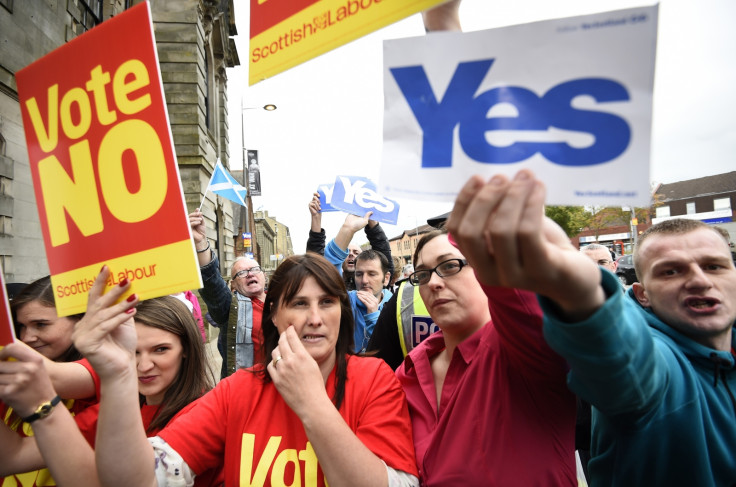Scottish Independence Quick Guide: Will Anything Change on a No Vote?

The referendum process will change the course of Scotland's history forever, even if voters decide to stay within the 307-year old union with England.
Both the Yes and No vote will cause huge financial and political fractures.
Why?
All three political parties have promised to give more power to Scots over financial and social issues if they reject independence.
"We agree that the UK exists to ensure opportunity and security for all by sharing our resources equitably across all four nations to secure the defence, prosperity and welfare of every citizen," says the pledge, signed by the main three party leaders in Westminster.
"We believe that the arguments that so powerfully make the case for staying together in the UK should underpin our future as a country.
"We will honour those principles and values not only before the referendum but after. People want to see change. A 'No' vote will deliver faster, safer, and better change than separation."
Surely that's a good thing for Scotland?
For Scotland, if the UK grants it more powers to control tax, it would lead to maximum devolution (known more commonly as devo max).
Devo max is when a country such as Scotland is given the power to control and create laws over everything other than defence and foreign affairs.
While Scotland has the ability to create its own laws over over 12 aspects of society, such as education, environment and social services, Westminster retained the power to control major areas such as benefits and social security, immigration, employment, and the energy industry.
If devo max happens it would give Scottish MPs great power, but there will remain a question on whether they should be allowed to be involved in English legislation - as they currently are.
How will it affect Westminster?
It seems like a no win situation for the current parties in power - the Conservative-led coalition with the Liberal Democrats.
These parties, as well as Labour, have signed an agreement to give Scotland enhanced powers over areas such as tax, if they opt out of independence.
However, politicians may decide to vote against this if they feel that Scotland would get too much power and still have a say over English legislation.
In turn, a vote of 'no confidence' in Prime Minister David Cameron could see him resigning.
If they don't push through new powers, it could be perceived as an outright lie to the electorate and hurt the current government's chances in the 2015 General Election.
When will we know?
Politicians have pledged to immediately start working on new powers for Scotland as of 19 September, if Scots decide to stay in the union.
However, the proposals will not be presented until the first quarter of next year.
© Copyright IBTimes 2025. All rights reserved.






















